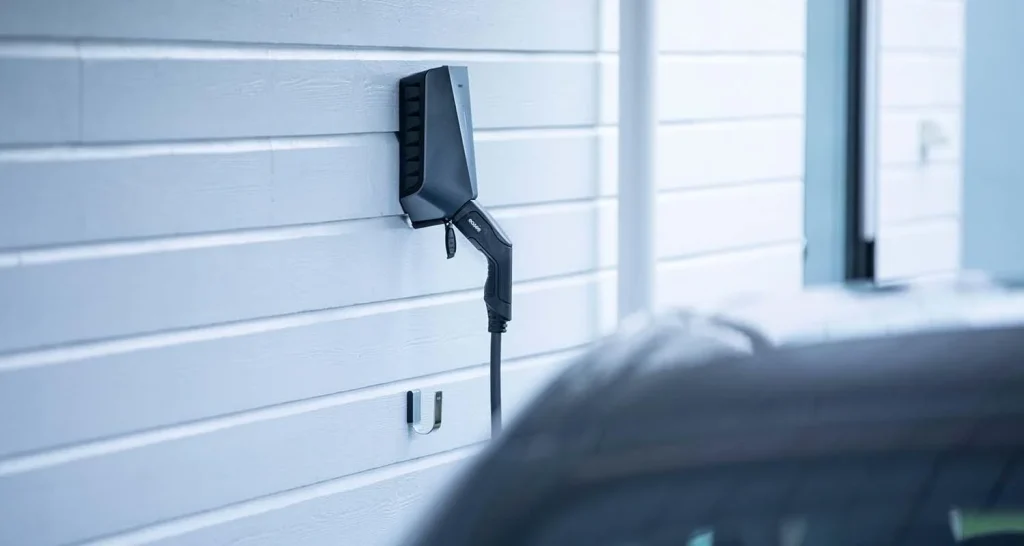As the demand for electric vehicles continues to rise, more and more people are looking to install residential chargers in their homes. However, with so many options available on the market, choosing the right charger for your electric car can be a daunting task. It is important to know how to choose ev residential charger and consider several factors, such as the type of charger, your home’s electrical capacity, charging speed, and efficiency, before making a decision.
To begin with, it is essential to understand the different types of chargers available. Level 1 chargers, for instance, are the slowest and most basic type of charger. They use a standard household outlet and can take up to 12 hours to fully charge an electric car. Level 2 chargers, on the other hand, are faster and more efficient, and can charge an electric car in 4-6 hours. Finally, Level 3 chargers, also known as DC fast chargers, are the fastest and most powerful type of charger. They can charge an electric car in as little as 30 minutes, but require a dedicated electrical circuit and can be costly to install. By understanding the differences between these types of chargers, you can make an informed decision about which one is best suited for your needs.
Understanding the Different Types of Chargers
The categorization of chargers is based on their charging levels, namely Level 1, Level 2, and DC Fast Charging, with each level providing a different charging speed and power output. Level 1 chargers are the slowest and typically come with the car, requiring a standard 120-volt outlet for charging. Level 2 chargers are faster and require 240-volt outlets, which may require installation by a licensed electrician. DC Fast Charging is the fastest option, providing up to 80% charge in 20-30 minutes, but can be expensive and may require significant installation requirements and maintenance costs. It is important to consider the charging speed needed, installation requirements, and maintenance costs when selecting a charger. When evaluating your home’s electrical capacity, it is important to consider the amperage and voltage of your electrical panel to ensure it can handle the charger’s power requirements.
Evaluating Your Home’s Electrical Capacity
Assessing the electrical capacity of your home is a crucial step in determining the appropriate charging solution for your electric vehicle. Before you install a residential charging station, you need to know if your home’s electrical infrastructure can accommodate the charging requirements of your electric vehicle. Upgrading infrastructure may be necessary if your home’s electrical panel is outdated or if it does not have enough capacity to support the charging station. Hiring an electrician to evaluate your electrical system and make sure it can handle the additional load is highly recommended. Your electrician can also suggest upgrades or modifications that may be required to meet the charging needs of your electric vehicle. It is important to consider these factors to avoid any issues or damage to your electrical system. With a proper evaluation and upgrades, you can ensure that your electric vehicle is safely and efficiently charged at home. Considering charging speed and efficiency, let’s explore how to choose the right charging station for your specific needs.
Considering Charging Speed and Efficiency
Optimizing the charging speed and efficiency of an electric vehicle requires a careful consideration of the available charging options, taking into account the vehicle’s battery capacity, driving habits, and charging needs. When selecting a charging network, it is important to consider the charging infrastructure in your area, the charging rate, and the cost of charging. Many charging networks offer varying rates, so it is important to consider which provider offers the best charging rate for your needs. Additionally, it is important to consider the environmental impact of charging your electric vehicle. While electric vehicles produce less emissions than traditional cars, the production of electricity can still have an impact on the environment. Choosing a charger that is energy-efficient and uses renewable energy can help to minimize your environmental impact. Ultimately, selecting the right charger for your electric car will depend on a variety of factors, including your driving habits, your location, and your budget. The next section will delve into the process of selecting the best charger for your electric car without writing ‘step’.
Choosing the Best Charger for Your Electric Car
What factors should be considered when selecting a charging solution for an electric vehicle, and how can these factors be weighed to ensure optimal performance and environmental impact? One of the most critical factors when choosing a residential charger for an electric car is the installation options. For instance, some chargers require professional installation and may need a hardwired connection to the electrical panel, while others can be plugged into a standard wall outlet. Cost comparison is another essential factor to consider as it may vary depending on the type of charger, its features, and the cost of installation. Generally, Level 1 chargers are less expensive than Level 2 chargers, but the latter can provide faster charging times. Furthermore, it is important to consider the compatibility of the charger with the electric car’s battery and charging capabilities. Ultimately, the right charger for an electric car depends on individual needs, such as the car’s daily usage, driving habits, and budget.
Conclusion
After understanding the different types of chargers and evaluating your home’s electrical capacity, it is important to consider charging speed and efficiency when choosing the best charger for your electric car. The charging speed is determined by the amount of power the charger can deliver to the car, while efficiency is the amount of power the charger consumes in the charging process.
When it comes to charging speed, it is important to note that a higher power charger will deliver more power to the car, resulting in faster charging times. However, it is also important to consider the efficiency of the charger, as a higher power charger may consume more energy than a lower power one. Thus, it is essential to strike a balance between charging speed and efficiency to ensure that you are not only charging your car quickly but also doing so in an environmentally friendly manner.
In conclusion, choosing the right residential charger for your electric car can be a daunting task. However, by understanding the different types of chargers, evaluating your home’s electrical capacity, and considering charging speed and efficiency, you can make an informed decision. Remember, it is important to strike a balance between charging speed and efficiency to ensure that your car is charged quickly and efficiently. As the saying goes, “slow and steady wins the race,” and by carefully selecting the right charger for your electric car, you will be well on your way to winning the race to a sustainable future.
You may also like to read:
Security Systems 101: What to Look for in Your Search


